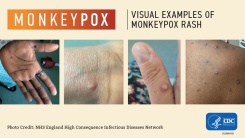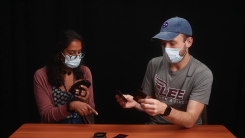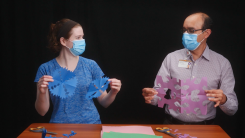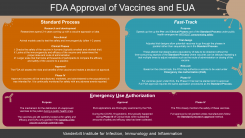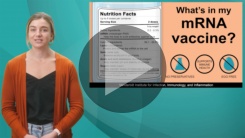ImmuKnow+ is a science publication designed and produced by the Vanderbilt Institute for Infection, Immunology and Inflammation (VI4). All articles are written by Vanderbilt affiliated students, faculty, and staff from various interdisciplinary departments. Our goal is to develop accessible, varied content to inform and educate the public on scientific discoveries and advances within VI4 and its collaborators through a multimedia platform. This publication aims to foster education in science, increase public engagement, and enhance communication between active researchers and the public.
Monkeypox – symptoms, transmission, and prevention
Casey Butrico
October 3, 2022
Monkeypox – symptoms, transmission, and prevention. Since the 1970s, there has been a steady rise in monkeypox virus cases. While the Orthopoxvirus genus is no stranger to the United States, the specific virus responsible for the monkeypox outbreak has largely been found in African countries, until recently. The geographic footprint of the virus and age of those contracting the disease has steadily expanded. While the epidemiology and symptoms associated with monkeypox are complex, the Centers for Disease Control (CDC) and World Health Organization (WHO) have multiple resources to educate us on the disease progression and modes of transmission.
FDA Approval of Vaccines and EUA Infographic
Helen Parrington
June 15, 2022
FDA Approval of Vaccines and EUA - All vaccines distributed in the USA are under regulation of the FDA. There is a Standard Process that researchers will use to go through clinical trials and vaccine approval. During the COVID-19 pandemic, the FDA utilized a Fast-Track method that helped vaccines be tested more quickly without compromising on safety goals. Additionally, due to the COVID-19 pandemic, the FDA also was granting Emergency Use Authorization (EUA) so that the vaccines could be administered to the public more quickly. It’s important to note that the FDA was working on modernizing clinical trials, including creating guidance for adaptive designs, back in 2018. The COVID-19 pandemic created the need for this “fast-track” to be implemented.... Click the image to the left to continue reading.
What's in my mRNA Vaccine?
Taylor Engdahl
November 19, 2021
The mRNA vaccine is a new type of vaccine that allows your body to trigger an immune response without using the actual germ to train your immune system. Instead, it trains your immune response using a piece of the virus and will later protect you from getting infected/sick if you encounter the actual virus. Since it is new, here is a list of the generalized ingredients for the mRNA vaccines currently available in the US.... Click the image on the left to learn more!
Metabolic Syndrome and COVID-19
Sohini Roy, Ph.D.
November 1, 2021
The COVID-19 pandemic has adversely affected our lives since its emergence in December 2019 and urged the development of therapeutics and prophylactics to combat the disease. Masks, sanitizers, and social distancing have become the new normal. Although we are taking baby steps towards a COVID-free world, thousands of people are still getting infected worldwide. At the time of writing this, over 4.8 million people have died worldwide after infection with the deadly virus. COVID-19 is a complex disease. While most individuals recover after mild to manageable symptoms, a significant fraction of people developed serious complications which require hospitalization and ventilation and often progress to multiorgan failure and death... Click the image to the left to continue reading.

